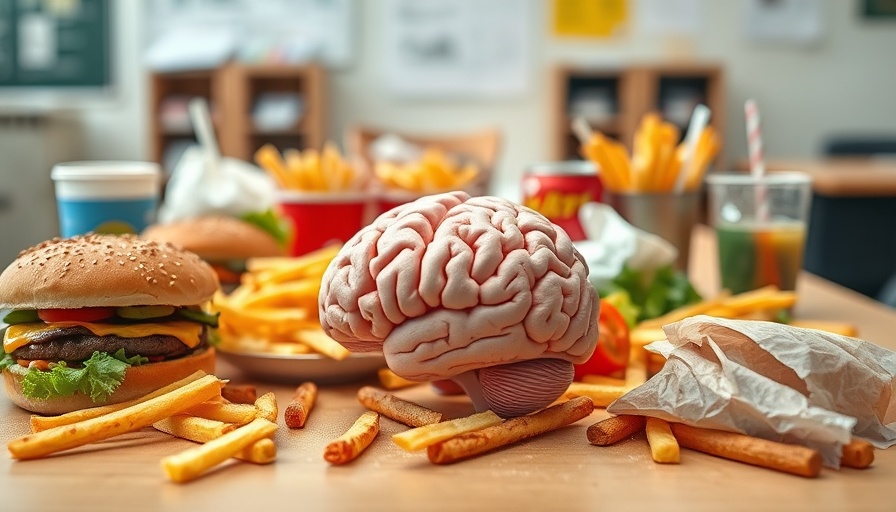
How Diets Shape Our Brain Health
Recent research has brought to light the significant connection between diet and cognitive function, particularly highlighting the adverse effects of high-fat, high-sugar (HFHS) diets. Conducted by the University of Sydney, this groundbreaking study reveals that consuming foods rich in refined sugars and saturated fats directly impairs our ability to navigate our environments, affecting our spatial memory.
Understanding the Impact on Memory
The study involved 55 university participants who were tested on their ability to find a treasure chest in a virtual reality maze. This experiment specifically aimed to assess spatial navigation—an essential capability associated with the health of the hippocampus, the brain region responsible for memory and navigation. Astonishingly, the participants who adhered to lower fat and sugar intakes were significantly better at pinpointing locations accurately, suggesting a strong correlation between dietary habits and cognitive performance.
Reversibility of Cognitive Decline
While the results are concerning, there's a silver lining: Dr. Dominic Tran, who led the study, emphasizes that dietary changes can effectively restore hippocampal health. This means that making conscious choices about what we eat can lead to improved memory and navigation skills, allowing people to better explore new places or find their way home easily. “We think this is an easily reversible situation,” says Dr. Tran—inviting us to consider the potential benefits of healthier eating habits.
Why This Research Matters
This revelation is particularly crucial in today's society where processed foods laden with sugars and fats are prevalent. As we engage in public discourse regarding nutrition, understanding such links could drive a societal shift towards healthier eating habits, impacting overall public health significantly. Given that cognitive function plays a critical role in our daily lives—from academics to social interactions—this research acts as a reminder of the importance of viewing food not just as sustenance but as a vital component of brain health.
Making Informed Dietary Choices
Understanding the implications of this research encourages individuals to reflect on their eating patterns. By replacing high-sugar and high-fat foods with healthier alternatives, we can not only enhance physical wellness but also guard our cognitive functions. This potent combination of knowledge and action represents a powerful opportunity for anyone looking to improve their mental faculties.
 Add Row
Add Row  Add
Add 




 Add Row
Add Row  Add
Add 


Write A Comment